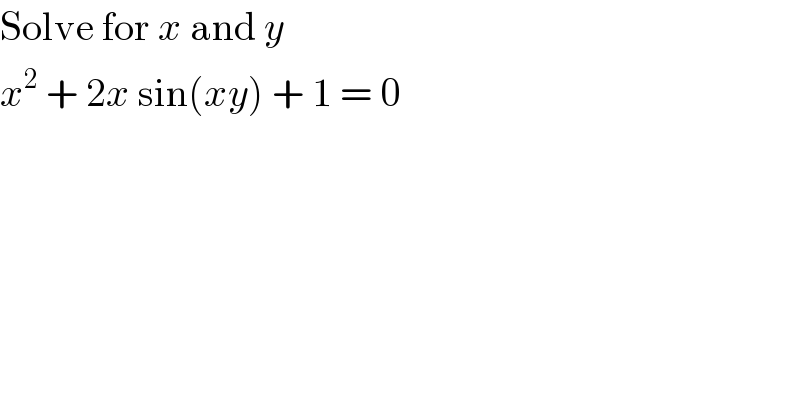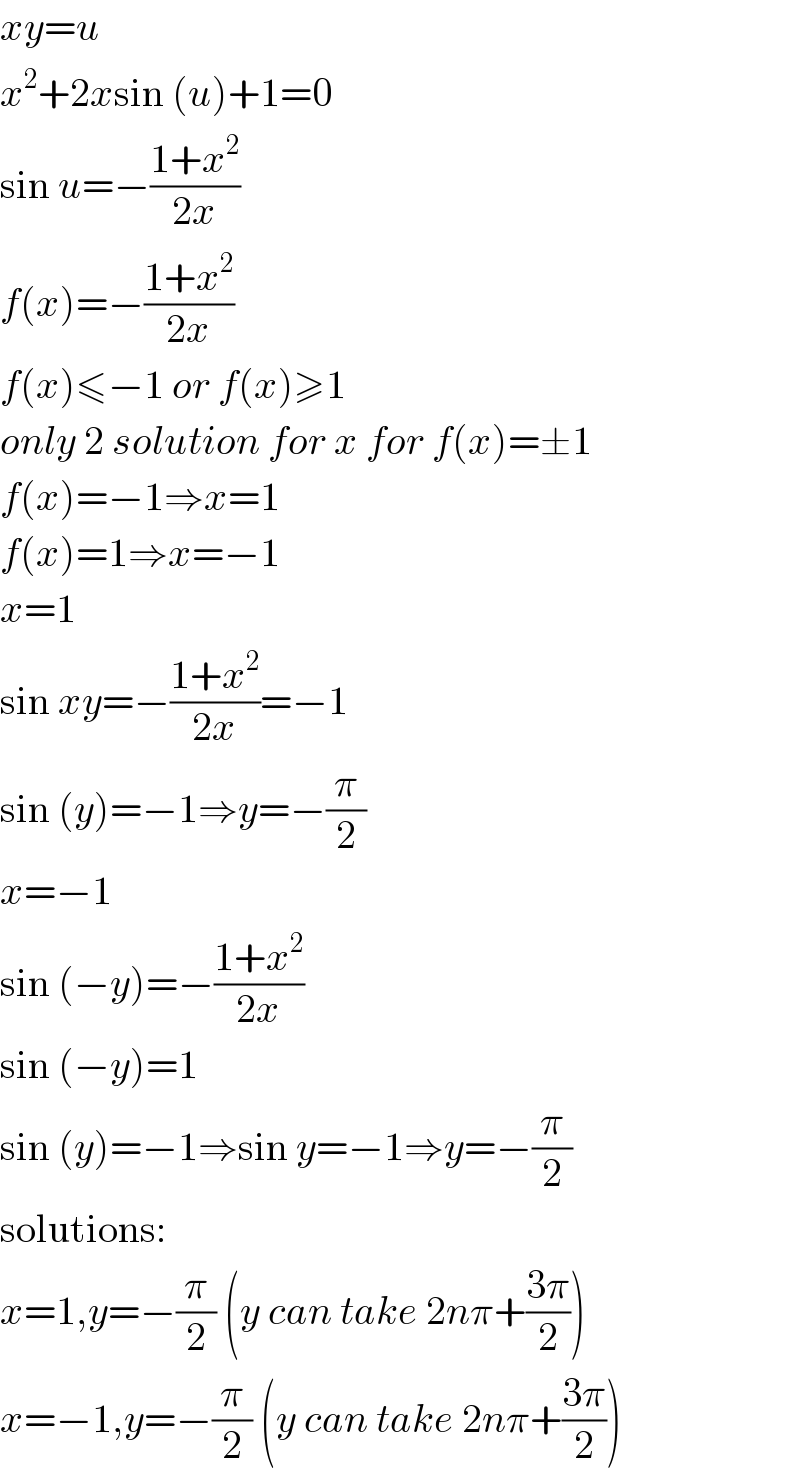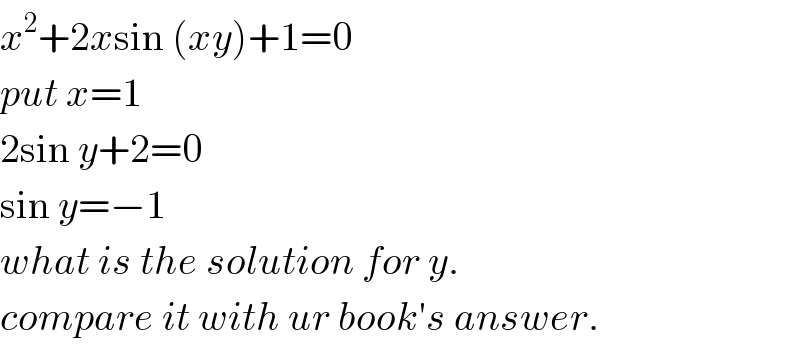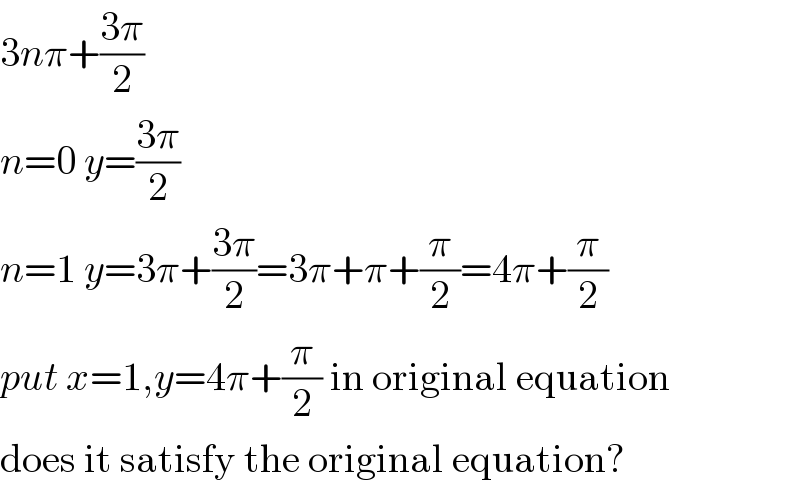
Question and Answers Forum
Question Number 15298 by Tinkutara last updated on 09/Jun/17

Commented by prakash jain last updated on 10/Jun/17

Commented by Tinkutara last updated on 10/Jun/17

Commented by prakash jain last updated on 10/Jun/17

Commented by prakash jain last updated on 10/Jun/17

Answered by Tinkutara last updated on 09/Jul/17
![Given equation can be written as [x + sin (xy)]^2 + cos^2 (xy) = 0 ∴ cos (xy) = 0 and x + sin (xy) = 0. ⇒ x = ± 1 cos y = 0; sin y = −1 ⇒ y = (2n + 1)((3π)/2) ⇒ (x, y) = (± 1, (2n + 1)((3π)/2))](Q17679.png)
